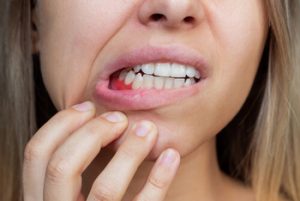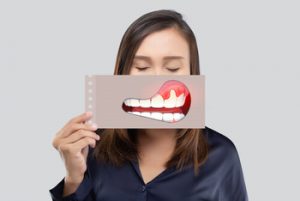Bleeding gums are a minor dental concern, often brushed off as a result of poor oral hygiene. But what if your gums pointed to something deeper involving one of your body’s most vital organs? The connection between bleeding gums and liver disease is not just coincidental. Emerging research suggests a meaningful relationship between oral health and the state of your liver.
Let’s explore how these two seemingly separate areas are actually closely connected and why paying attention to your gums might provide insight into your overall health.
What Causes Bleeding Gums in the First Place?
 The basics of gum bleeding
The basics of gum bleeding
Bleeding gums often occur due to poor oral hygiene, which leads to plaque buildup and gum disease. When plaque isn’t removed through brushing and flossing, it irritates the gum tissue, causing inflammation and eventually bleeding. Other causes include tooth decay, dry mouth, use of certain medications, or underlying health conditions such as blood disorders.
But what if your oral hygiene is good and your gums are still bleeding? That’s when it might be time to consider if something systemic is at play, such as liver disease.
The Role of the Liver in the Body
Why the liver matters more than you think
The liver is a vital organ that performs over 500 essential functions, including filtering toxins, aiding digestion, and supporting immune function. A healthy liver produces clotting factors that help blood coagulate when you get a cut. It also plays a crucial role in metabolizing medications, neutralizing acids, and maintaining overall well-being.
When the liver becomes compromised due to liver diseases like fatty liver disease, liver cirrhosis, or alcohol-related liver disease, its ability to perform these roles diminishes, and that includes its ability to help your blood clot properly.
How Liver Disease Affects Gum Health
Clotting issues and gum bleeding
One of the lesser-known consequences of chronic liver disease is its impact on blood clotting. When the liver function deteriorates, it produces fewer clotting factors, making the blood less able to coagulate. This can lead to gingival bleeding, gum bleeding, and even internal bleeding in more severe cases.
This is why people with advanced or end-stage liver disease might notice persistent bleeding gums, especially after brushing or flossing. They may also experience vomiting blood, very itchy skin, or shivering attacks due to related complications.
The Link Between Fatty Liver Disease and Bleeding Gums
Fatty liver’s surprising oral effects
Fatty liver disease, both alcoholic and non-alcoholic steatohepatitis, has become increasingly common. In its early stages, it might not cause any noticeable symptoms. Still, inflammation caused by fat buildup in the liver can affect the immune system and increase systemic inflammation throughout the body.
This chronic inflammation affects blood vessels and gum tissue, weakening the body’s ability to fight off oral infections and making gums more susceptible to bleeding and tooth loss.
In more advanced stages, scar tissue can develop, leading to liver cirrhosis or liver failure. The body’s weakened immune system, reduced saliva production, and the liver’s diminished ability to detoxify the blood create a perfect storm for poor oral health and bleeding gums.
Liver Conditions That May Lead to Gum Problems
Common liver issues with oral signs
- Alcohol-related liver disease: It can suppress the immune response and increase dry mouth, bad breath, and gum bleeding.
- Primary biliary cirrhosis: This is an autoimmune condition that may cause dry mouth and lead to infections and inflammation in the gums.
- Primary sclerosing cholangitis: It can increase systemic inflammation and affect the gums.
- Liver cirrhosis: A disease that leads to decreased production of clotting factors, which causes excessive bleeding even during minor cuts or flossing sessions.
Why Oral Health Declines When the Liver Struggles
The liver’s indirect influence on your mouth
There are several indirect effects of liver damage on oral health:
- Decreased saliva production: The saliva plays a key role in washing away food particles and bacteria. Less saliva leads to a higher chance of tooth decay and gum disease.
- Reduced detoxification: A compromised liver cannot efficiently remove toxins, allowing harmful substances to circulate in the bloodstream and impacting the gums and mouth tissue.
- Nutrient absorption: The liver plays a vital role in metabolizing nutrients. Poor nutrient absorption affects gum health and the body’s ability to heal.
Warning Signs to Watch For
How to spot trouble early
People with liver conditions may notice these oral symptoms:
- Persistent bleeding gums, even with gentle brushing
- Dry mouth
- Swollen or red gums
- Metallic taste in the mouth
- Chronic bad breath
- Ulcers or lesions that do not heal
- Easy bruising or vomiting of blood
These could be signs of underlying liver issues and warrant both dental and medical evaluation.
The Importance of Early Detection
Don’t ignore what your gums are telling you.
Bleeding gums may be one of the earliest signs that your liver health needs attention. While gum problems can result from poor oral hygiene, persistent bleeding without an obvious cause should not be ignored.
A blood test, liver biopsy, or imaging studies might be needed to evaluate liver function and rule out serious conditions such as advanced cirrhosis or liver failure. In some cases, individuals may require a liver transplant if the liver becomes severely damaged.
Taking Steps to Protect Your Oral and Liver Health
What you can do today
If you’re concerned about your oral health or liver health, here are some practical steps:
- Maintain oral hygiene: Brush twice daily, floss daily, and avoid sugary snacks.
- Use dental products that promote gum health and reduce plaque buildup.
- Schedule regular dental checkups to detect issues early.
- Reduce alcohol consumption to prevent fatty liver and alcohol-related liver disease.
- Eat a balanced diet of fruits, vegetables, and fiber to support liver health.
- Exercise regularly to manage weight and prevent fatty liver disease.
- Review your medical history with your doctor and share any dental symptoms.
When to See a Professional
Coordinated care is key.
If you experience bleeding gums, especially with other signs like fatigue, weight loss, or jaundice, consult your dentist and physician. Comprehensive care is essential, especially when dealing with complex conditions like chronic liver disease.
Dentists can help manage your oral infections, monitor for gum changes, and advise on safe cleaning techniques if you’re prone to bleeding. Physicians can evaluate the state of your liver and offer targeted treatment, which may include managing portal vein pressure, preventing blood clots, or correcting nutritional deficiencies.
Final Thoughts: Your Gums Might Be Speaking for Your Liver
 While bleeding gums might seem like a surface-level issue, they can sometimes reflect deeper health challenges. The link between oral health and liver diseases is an important reminder of how interconnected the body is.
While bleeding gums might seem like a surface-level issue, they can sometimes reflect deeper health challenges. The link between oral health and liver diseases is an important reminder of how interconnected the body is.
Taking care of your mouth isn’t just about keeping your natural teeth; it’s about preserving your overall well-being. If you notice gum changes that don’t improve with better hygiene, consider whether your liver could send a signal.
Stay alert, stay informed, and take care of your oral and systemic health.
References:
https://pmc.ncbi.nlm.nih.gov/articles/PMC10240805/
https://www.webmd.com/oral-health/ss/slideshow-bleeding-gums-causes
https://britishlivertrust.org.uk/information-and-support/liver-health-2/symptoms-of-liver-disease/
https://www.nhs.uk/conditions/alcohol-related-liver-disease-arld/symptoms/
https://www.news-medical.net/health/Bleeding-Gums-When-to-be-Concerned.aspx





